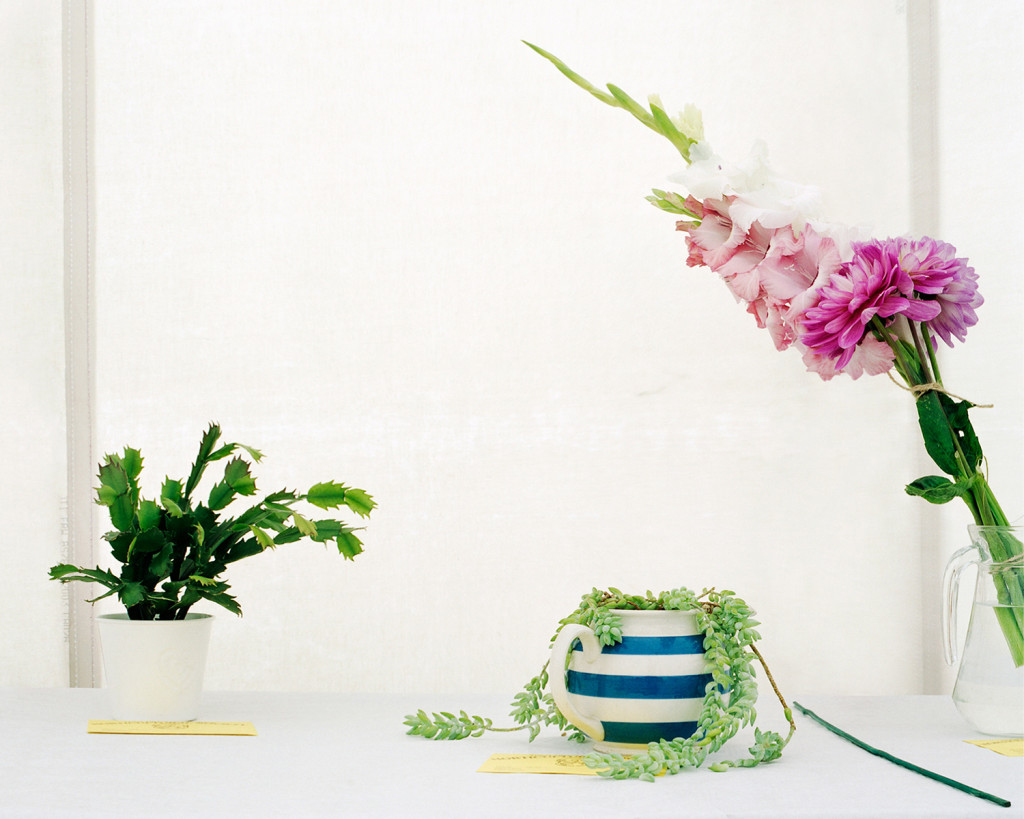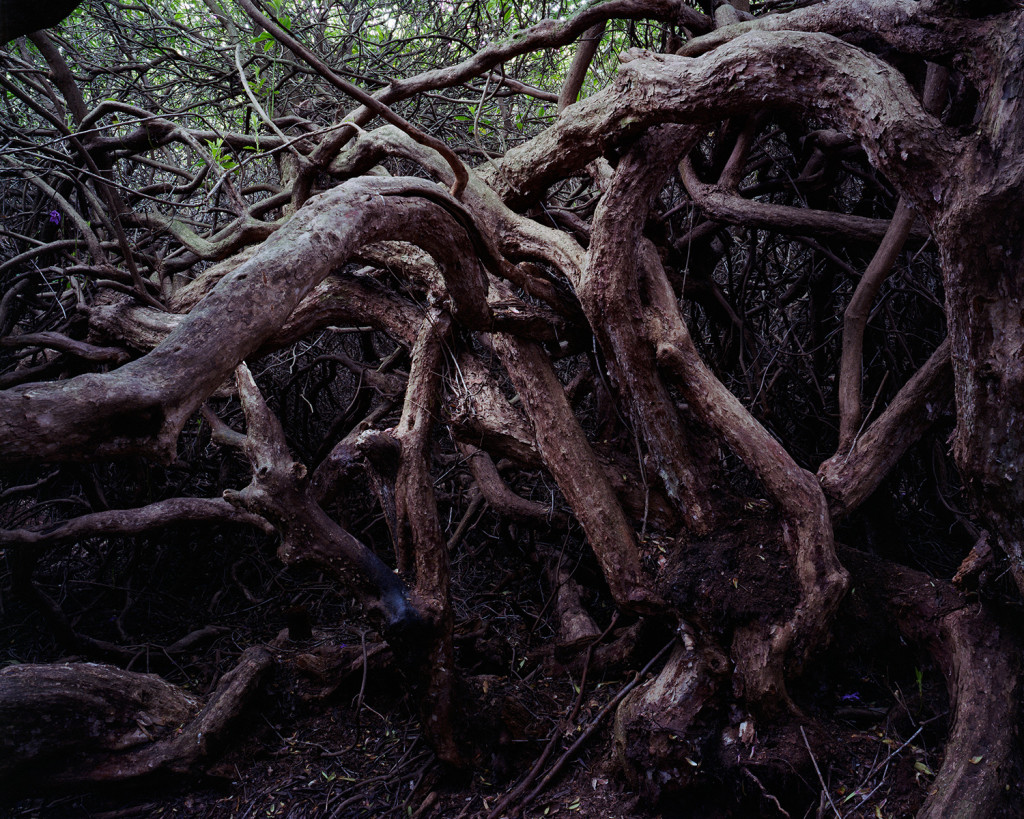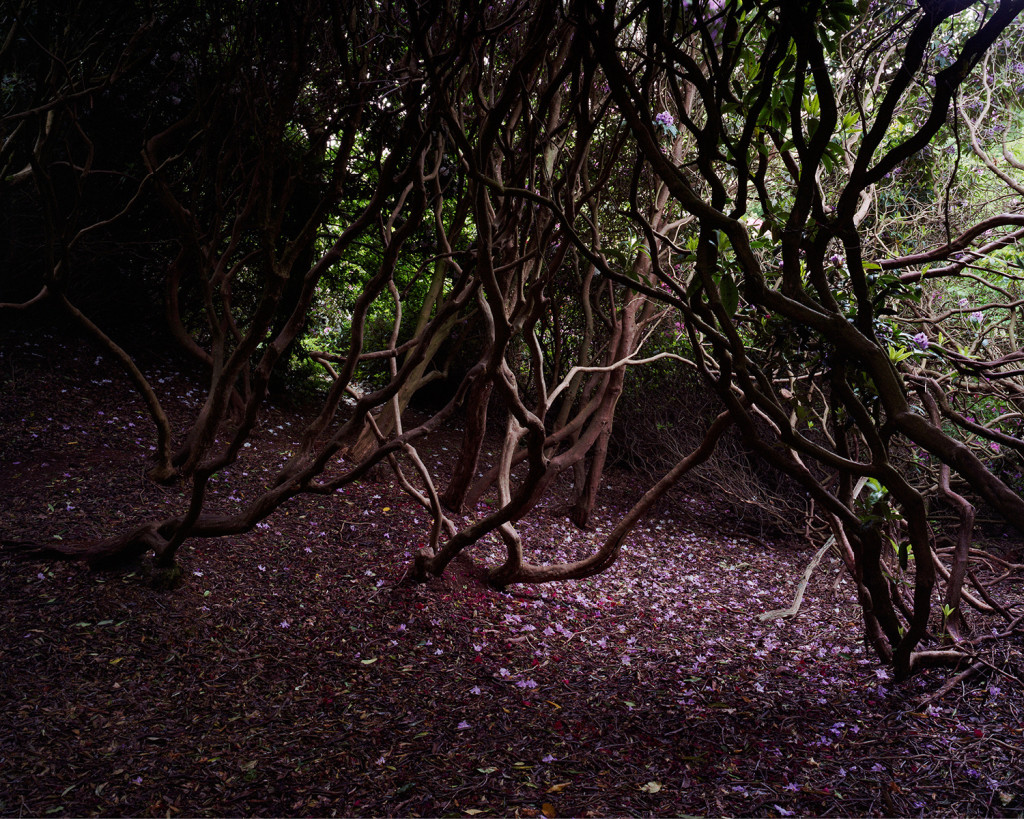Where to do plants belong? At the bottom of the food chain? At the centre of the world? In a pot? In the garden? Growing wild across moors and mountains, railways and roads…
In Ben Cave’s book Bloom, plants are depicted both in states of careful order, neatly aligned in vases or jugs, and out of control, creating havoc where they are no longer wanted.
Bloom consists of two quite different series of photographs. The first is a group of landscapes that feature four plants categorised as invasive non-native species in Great Britain. Rhododendron, giant hogweed, Himalayan balsam, and Japanese knotweed are seen in dark woods and suburban gardens, overflowing walls, and creeping onto pavements. The second series takes us inside the marquee or the village hall. Here Cave has produced portraits of flowers or vegetables, cut and brought inside for display and judgement. This is where they ought to be: lined up on tables and awaiting our inspection.
By interweaving these two different genres of photography, Cave suggests both the rigidity of the boundaries we erect and their tendency to crumble over time. If only we could fix nature in one place somehow – in a photograph perhaps. But even the photograph – copied, disseminated, interpreted – will not stay still forever. Bloom suggests both the unavoidable compulsion behind our desire for control and, in the end, perhaps the inevitability of its failure.
Bloom by Ben Cave is available to purchase online, priced £20.
bencave.net








